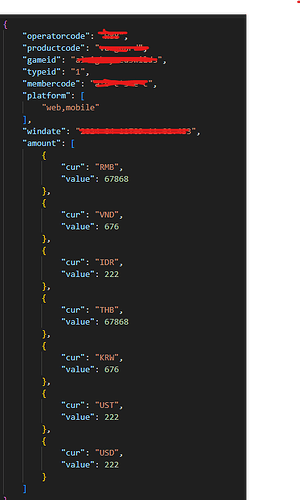this is my current code: `import pandas as pd
import json
Read two CSV files
file1 = pd.read_csv(‘tblsample1.csv’)
file2 = pd.read_csv(‘tblsample.csv’)
Merge based on a common column ‘slotWinnerSettingDetailId’
merged_df = pd.merge(file1, file2, on=‘slotWinnerSettingDetailId’, how=‘inner’)
print(“Merged DataFrame:”)
print(merged_df)
def convert_to_json(df, json_file):
# Prepare data list to store JSON entries
data =
for _, row in df.iterrows():
entry = {
"operatorid": row['operatorid'],
"productcode": row['productcode'],
"gamecode": row['gamecode'],
"type": row['type'],
"membercode" : row['membercode'],
"platform": [platform.strip() for platform in row['platform'].split(',')],
"winDate": row['winDate'],
"amount": [
{"cur": row['currencycode'].strip(), "value": int(row['amount'.strip()])}]
}
data.append(entry)
with open(json_file, mode='w', encoding='utf-8') as jsonf:
jsonf.write(json.dumps(data, indent=4))
csvFilePath = ‘merged_data.csv’
jsonFilePath = ‘merged_data.json’
Convert the merged DataFrame to JSON
convert_to_json(merged_df, jsonFilePath)
print(f"JSON data written to ‘{jsonFilePath}’.")
`
this is the ouput:
{ "operatorid": 1, "productcode": "sample", "gamecode": "sample", "type": 1, "membercode": "samplemember0000", "platform": [ "web", "mobile" ], "winDate": "2024", "amount": [ { "cur": "UST", "value": 9724 } ] }, { "operatorid": 1, "productcode": "sample", "gamecode": "sample", "type": 1, "membercode": "sample11111", "platform": [ "web", "mobile" ], "winDate": "2024", "amount": [ { "cur": "USD", "value": 9724 } ] },
what I want is to look like this format in json file : but instead of this looking like this, it also loops the membercode
